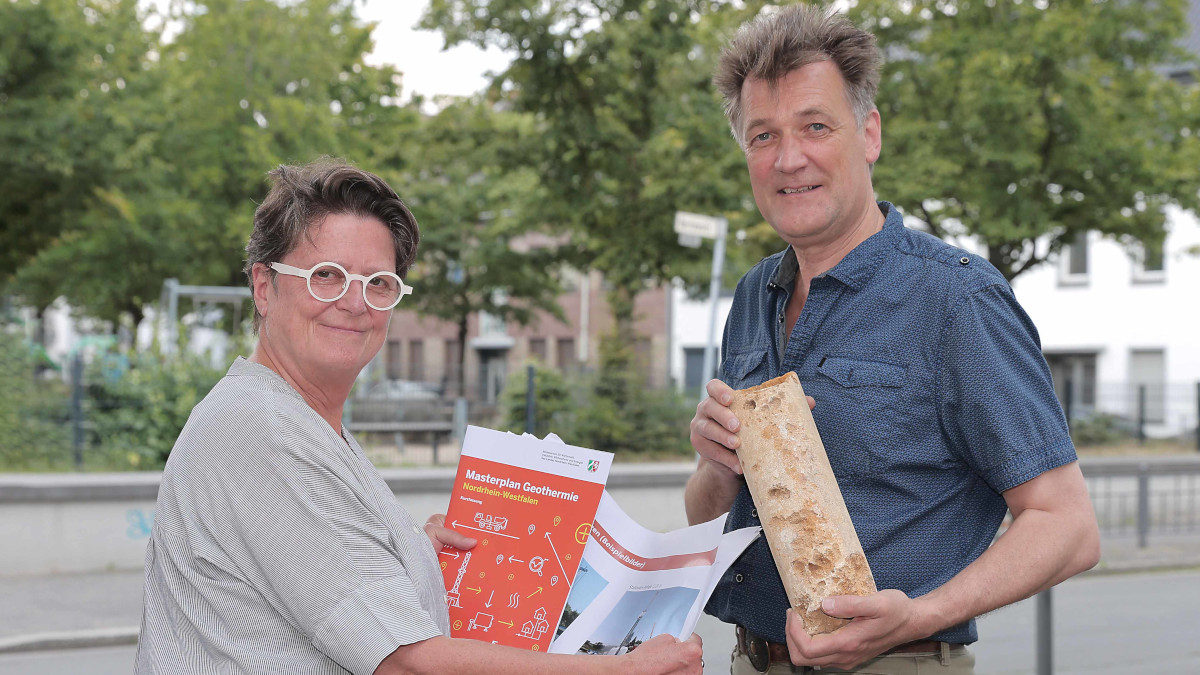
Details about the project were presented in a press conference by Krefeld’s environmental officer Sabine Lauxen and geologist Ingo Schäfer from the Geological Service of North Rhine-Westphalia (GD NRW). The work is part of the “Geothermal Energy NRW Master Plan” of the NRW Ministry of Economic Affairs that aims to expand heat generation from geothermal energy to 24 – 33 TWh per year within the next 20 years, which will account for 15 to 20% of the heat demand in NRW.
The research boreholes will be drilled in the car park behind the town hall of Krefeld on Konrad-Adenauer-Platz/Girmesgath. This area will be closed off for 3 to 4 months starting late autumn this year. Drilling is expected to take around eight weeks. Appropriate measures will be put in place to minimize the impact of the drilling to the residents.
Targeting a limestone layer
The research borehole is targeting a limestone layer that is postulated to hold enough warm water to generate heat. Data from the borehole will then help determine if there is indeed warm water and how much of it can be extracted.
The limestone layer had been previously identified to be in the subsurface of Krefeld by 2D seismic measurements done across NRW. This layer is estimated to be at depths of 400 to 700 meters, with an estimated thickness of 300 meters. The borehole is intended to penetrate the limestone layer completely with an original depth of 1000 meters. However, drilling will be terminated as soon as the lower edge of the limestone layer is reached.
Krefeld was chosen as the starting point of research drilling as the limestone layer is relatively shallower and does not require drilling beyond 1000 meters depth. Continuous core samples will be collected from the well and extensive geophysical borehole measurements are planned.
The estimated drilling costs, including an extensive investigation program, are EUR 3 million. The drilling is being finance d by the state of NRW. Subsequent drilling by the Krefeld municipal utility company with the aim of specifically using the thermal energy would be less costly, says Ingo Schäfer. According to the Geological Service, the investigation results are representative of the structure of the entire subsurface in the region and thus will benefit the wider region beyond Krefeld.
The GD NRW will carry out further research drillings of this type in other parts of the state. If municipalities implement geothermal projects themselves in the future, the state of NRW will provide insurance against the risk of discovery for planned drillings. The state will cover part of the costs of the municipalities if a drilling does not bring the hoped-for success. The Geological Service provides further extensive information about the project, including on YouTube, on thewebsite https://www.seismik.nrw.de/ .